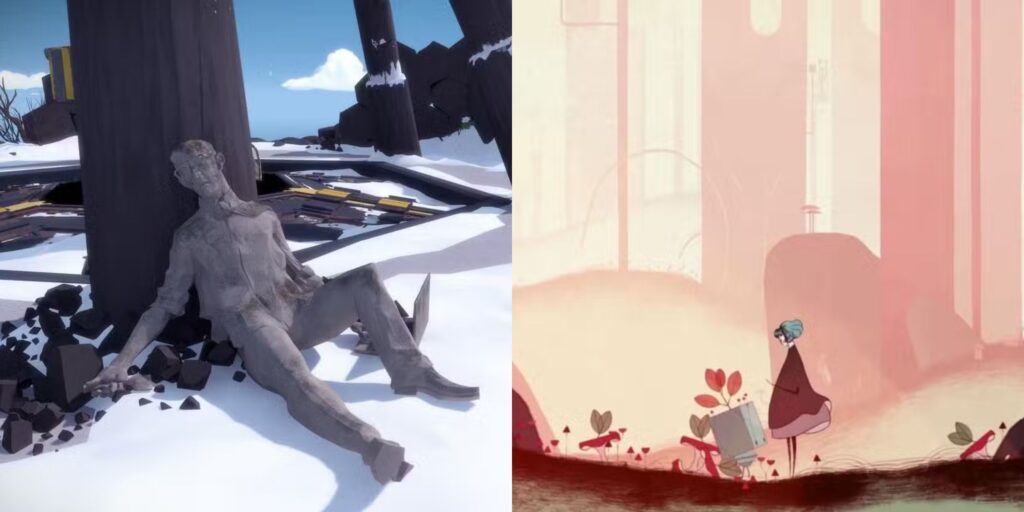Summary
Indie games allow for unique, immersive worlds due to a lack of mainstream constraints.
Games like The Witness and Gris emphasize exploration over grand quests.
Titles like A Short Hike and Subnautica balance curiosity with caution for rewarding experiences.
Indie games are often where creativity and ambition thrive. Without the constraints of massive budgets or mainstream expectations, indie developers have crafted some of the most unique and immersive worlds players have ever wandered through.
4:06
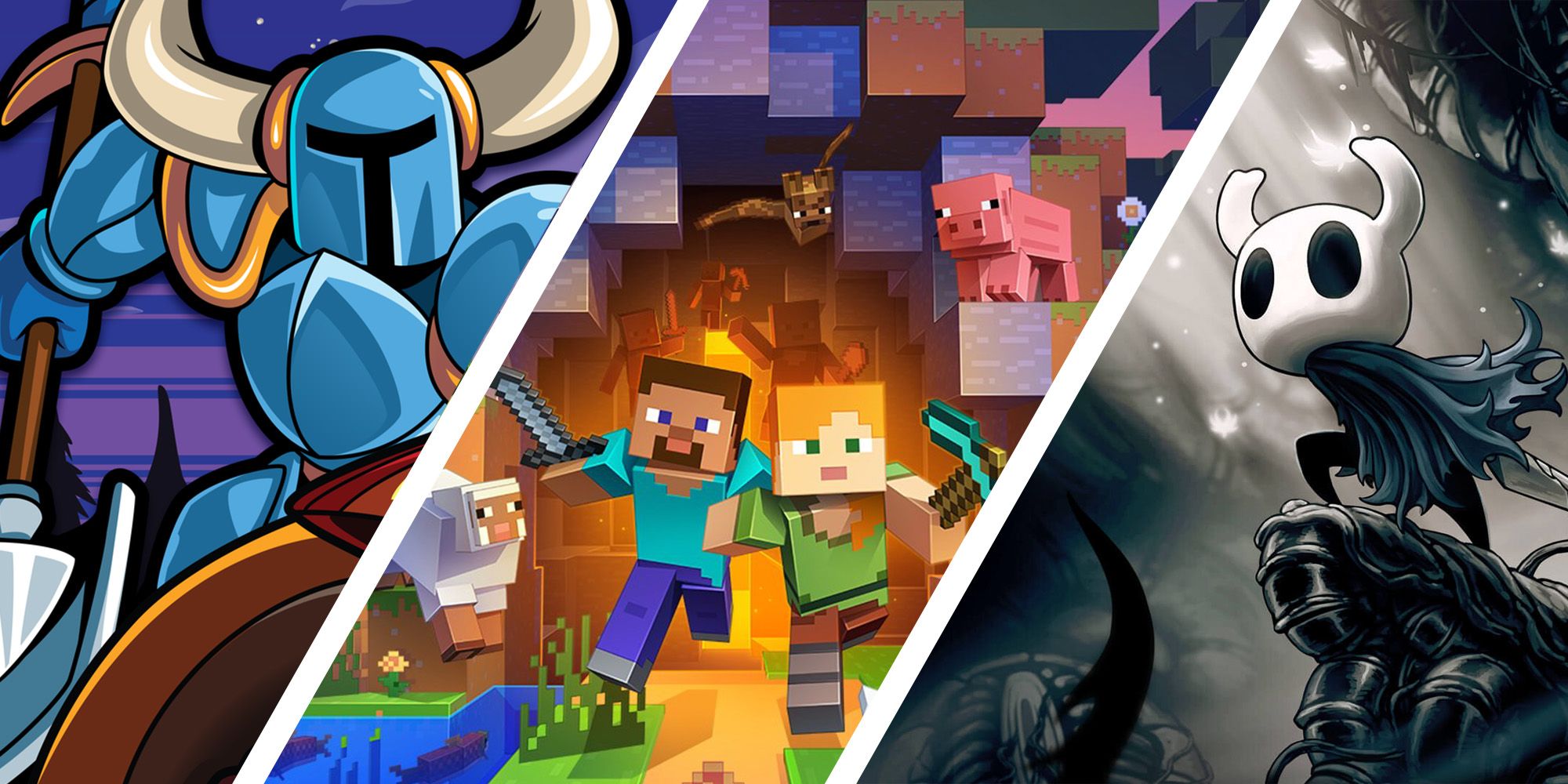
Related
Indie Games That Became Major Success Stories
Though most only see a modest amount of success, some indie games have etched their way into video game history by becoming must-have titles.
Whether it’s a serene hike up a mountain, a perilous journey through a haunted cavern, or the quiet contemplation of an alien planet’s mysteries, these games don’t just ask players to explore—they make them want to.
7
The Witness
When Solving Puzzles Means Seeing the World Differently
When it comes to exploration, few games blend curiosity and challenge quite like The Witness. It’s a first-person puzzle game, but that’s really just scratching the surface. Players find themselves stranded on a vibrant, mysterious island, filled with hundreds of puzzles that seem to spring organically from the environment itself.
At first glance, the island is a paradise—lush trees, bright skies, and intriguing landmarks. But The Witness doesn’t hand out answers. Players are encouraged to look closer at their surroundings, discovering that each rock formation, shadow, or pattern could be the key to unlocking another puzzle. It’s not just about walking from point A to B; it’s about changing how players see the world around them.
What makes The Witness so rewarding is how it demands patience and observation. Each area introduces a new mechanic, and players have to connect what they learn from one puzzle to the next. The sense of accomplishment when it all clicks is massive, but the journey itself—wandering through vibrant gardens or ominous caverns—never loses its intrigue.
6
A Short Hike
Sometimes, The Journey Is More Important Than The Peak
A Short Hike is exactly what it sounds like—an adventure that doesn’t demand a grand quest or epic battles. Instead, it’s about a bird named Claire who just wants to get some cellphone reception by climbing to the top of a mountain. It’s simple, but it’s also wonderfully heartfelt.
The island players get to explore is packed with charming NPCs, quirky side activities, and hidden treasures tucked into cozy corners. Unlike most games that push players to the next objective, A Short Hike lets them take things slow. Skipping rocks, finding feathers to increase flight time, and chatting with fellow hikers make the world feel alive.
3:43
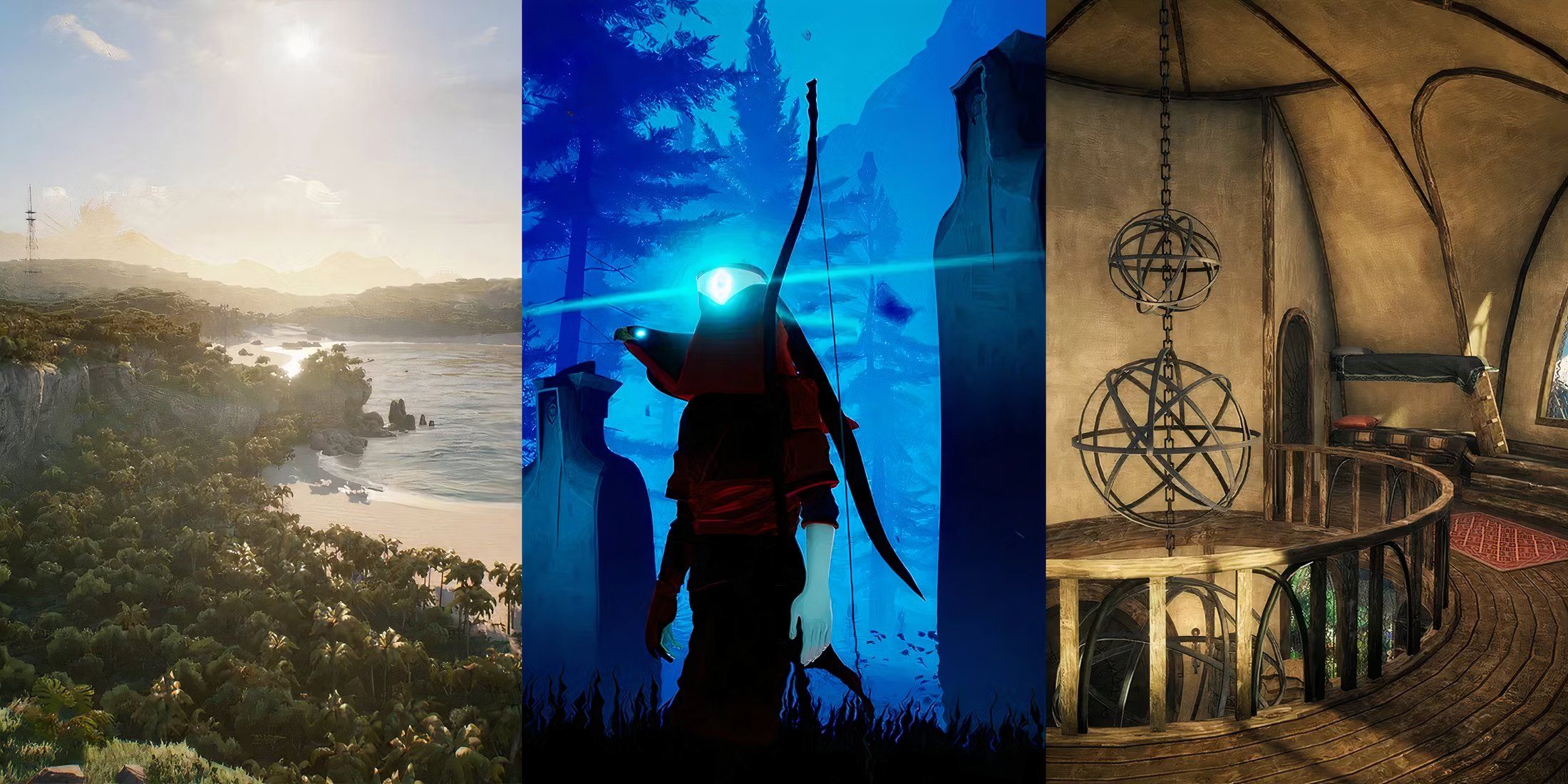
Related
8 Best Short Open-World Games You Can Finish Over A Weekend, Ranked
Most open-world games take dozens of hours to complete, but there are a few short open-world games that can be completed in a single weekend.
Exploration here isn’t about epic vistas or colossal scale—it’s about soaking in the little moments. The game’s vibrant pixel art and soothing soundtrack make every step feel like a breath of fresh air. By the time Claire reaches the summit, it’s not just the view that feels rewarding—it’s the unexpected connections made along the way.
5
Gris
Finding Color In A World Gone Gray

GRIS
Released
December 13, 2018
Gris doesn’t just tell a story; it paints one. This emotionally charged platformer sees players guiding a young girl through a world drained of color, and every step forward brings vibrancy back to the landscape. The way Gris moves through the environment is almost dance-like, blending fluid animation with stunning watercolor backdrops.
What makes the exploration in Gris feel so profound is how it intertwines with the game’s themes of grief and recovery. Each new area brings a splash of color and a new ability, making Gris feel more capable and resilient as the world itself becomes richer. There’s no dialogue or text to guide players—just the environment itself, unfolding in a way that’s both graceful and melancholy.
It’s not about finding secrets or hidden items but about embracing the journey itself. Moving through wind-swept ruins or gliding through underwater caverns becomes a metaphor for overcoming loss, making Gris feel like an art piece as much as an adventure.
4
Subnautica
When The Deep Blue Is Anything But Calming
Few games capture the fear and wonder of the ocean like Subnautica. Crashing on an alien water planet is bad enough, but discovering the depths hide both beauty and horror makes every dive feel like a risk. The sea floor is teeming with life, from bioluminescent plants to predatory leviathans.
Exploration in Subnautica is all about balancing curiosity with caution. Players start with little more than a diving suit and a desperate need for resources, but as they build equipment and craft submarines, the urge to venture deeper becomes impossible to resist. It’s a game that makes the mundane, like gathering scrap metal, feel meaningful when it’s the difference between life and death.
The thrill of seeing a new biome, only to hear a distant roar reminding players they’re not alone, is unmatched. And as they dive deeper, uncovering the story of what happened to previous visitors, the planet’s haunting beauty never loses its grip.
3
Journey
Where Walking Becomes A Spiritual Experience
There’s something almost meditative about Journey. Without a single word of dialogue, it takes players across vast deserts, up snowy peaks, and through ancient ruins. It’s a game where the destination matters less than the quiet, reflective moments along the way.
One of the most powerful aspects of exploration in Journey is the way it pairs players with a random companion. There’s no voice chat, no usernames—just two robed figures sharing the same path. The sense of connection is profound, as players can only communicate through musical chimes. It’s subtle but deeply human.
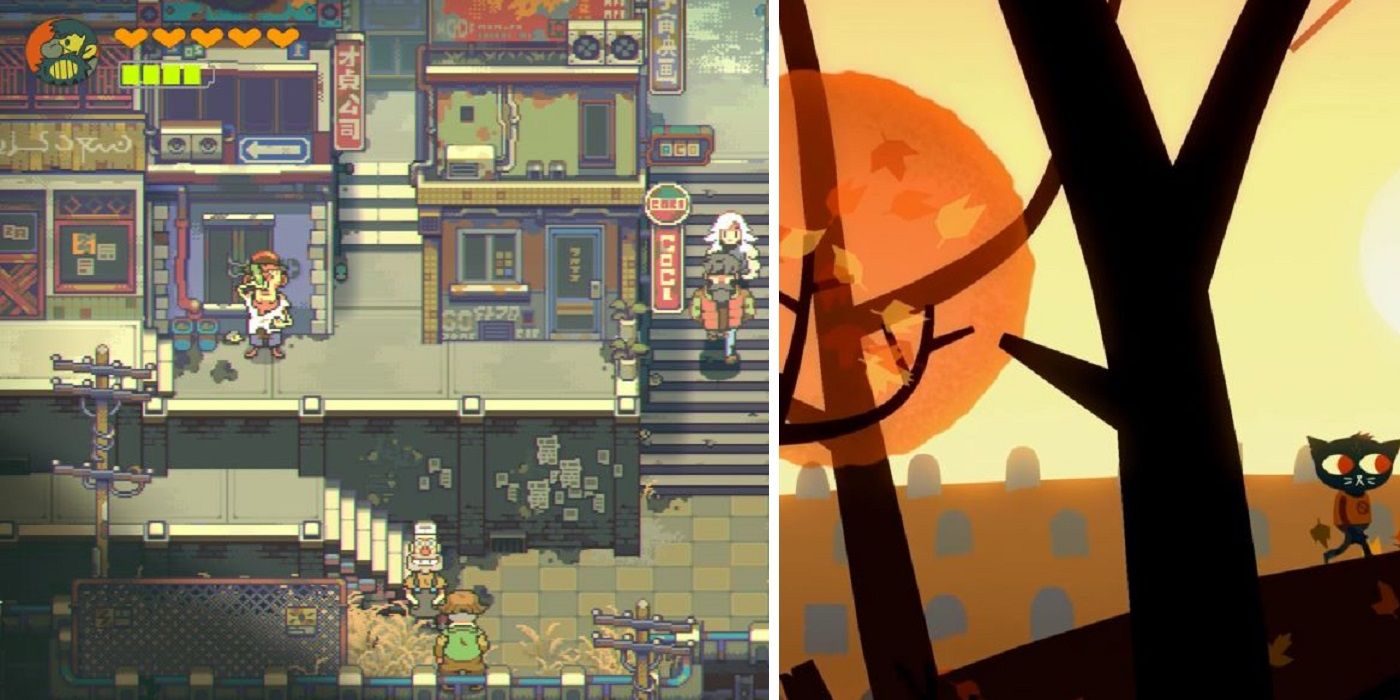
Related
Journey & 9 Other Indie Games That Are Pure Works of Art
Indie games present a vision that isn’t seen much in AAA games. The visual aesthetic of these games can become a strong foundation to build on.
Gliding through sand dunes or catching the wind to soar between platforms never gets old. The game’s dynamic soundtrack swells at just the right moments, making even the simplest act of movement feel grand. By the end, it’s clear that Journey isn’t just about crossing the finish line—it’s about discovering who players became along the way.
2
Hollow Knight
When Every Tunnel Holds A Story
Beneath the fading town of Dirtmouth lies Hallownest, a sprawling, ruined kingdom that beckons players to explore its dark, maze-like corridors. Hollow Knight doesn’t hold players’ hands. It drops them into a world that feels ancient and alive, filled with secrets, bosses, and cryptic lore.
Exploration in Hollow Knight is driven by curiosity. Each new area introduces fresh challenges, and the sense of progression comes not just from unlocking abilities but from mastering the game’s tight combat. The atmosphere is thick with melancholy, but it’s hard not to feel a sense of wonder as new paths branch out in unexpected directions.
There’s always a risk of getting lost, but that’s part of the magic. Venturing deeper into fungal caverns or crystalline mines feels both daunting and exhilarating, making each shortcut discovered feel like a triumph.
1
The Outer Wilds
When The Whole Universe Is Yours To Explore
What makes The Outer Wilds stand out is how it turns exploration into an existential quest. Players are stuck in a time loop, reliving the last 22 minutes before a star goes supernova. That ticking clock could make everything feel rushed, but instead, it encourages experimentation.
Each planet holds a story, from the crumbling ruins of the Nomai to the eerie, drifting wrecks lost in space. The sense of wonder when landing on a new celestial body is paired with the fear that time’s running out, but death isn’t a setback—it’s just another clue in the cosmic puzzle.
Exploration here feels like being a cosmic detective, piecing together the history of an ancient civilization while grappling with one’s own mortality. It’s profound, but it’s also playful, with moments of sheer awe when stumbling across an ancient temple or witnessing a planet crumble in real-time.
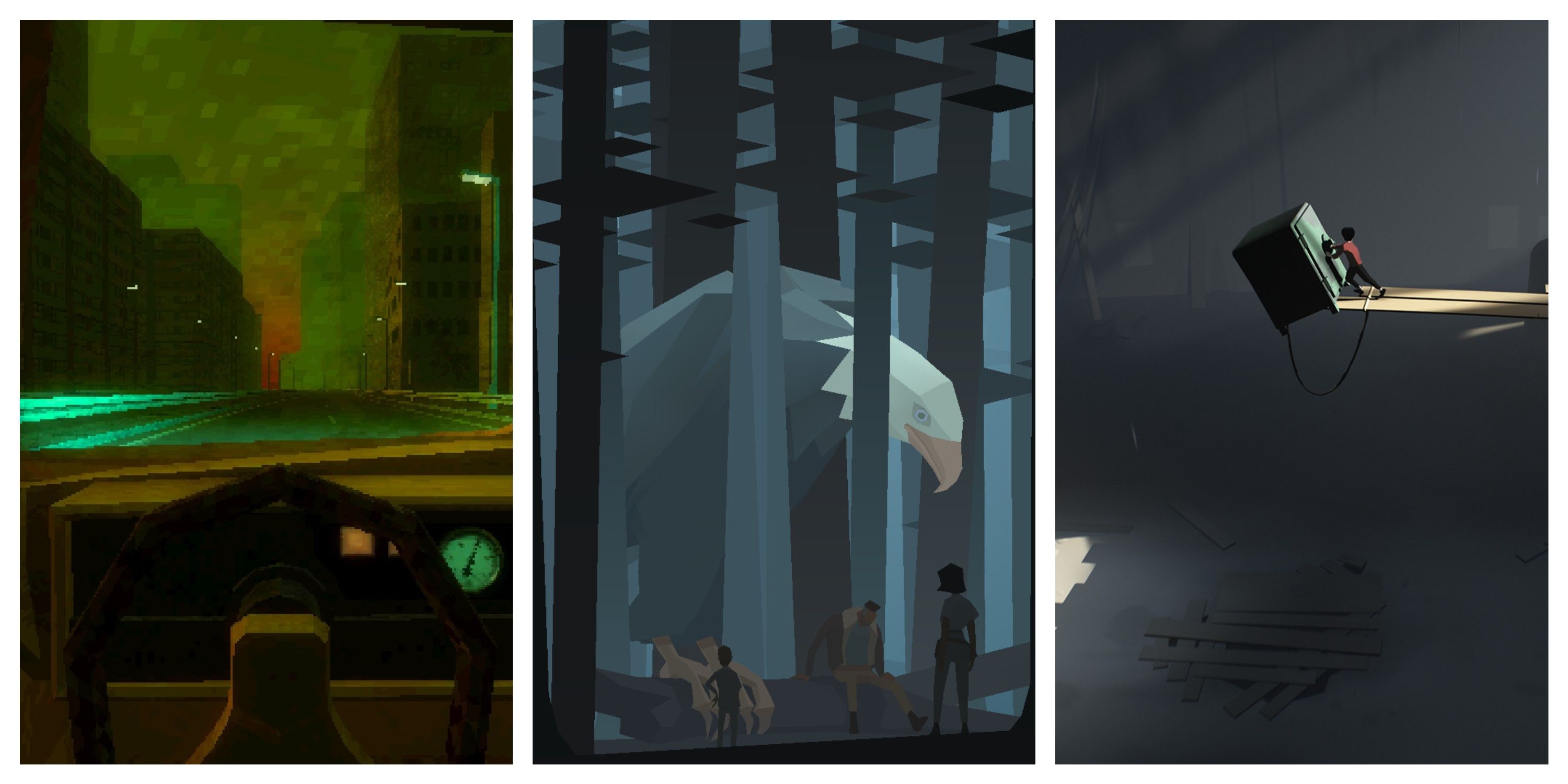
More
Most Other-Worldly Indie Games
There are some great Indie Games out there that have an amazing other-worldly quality about there. Here are some awesome examples.
